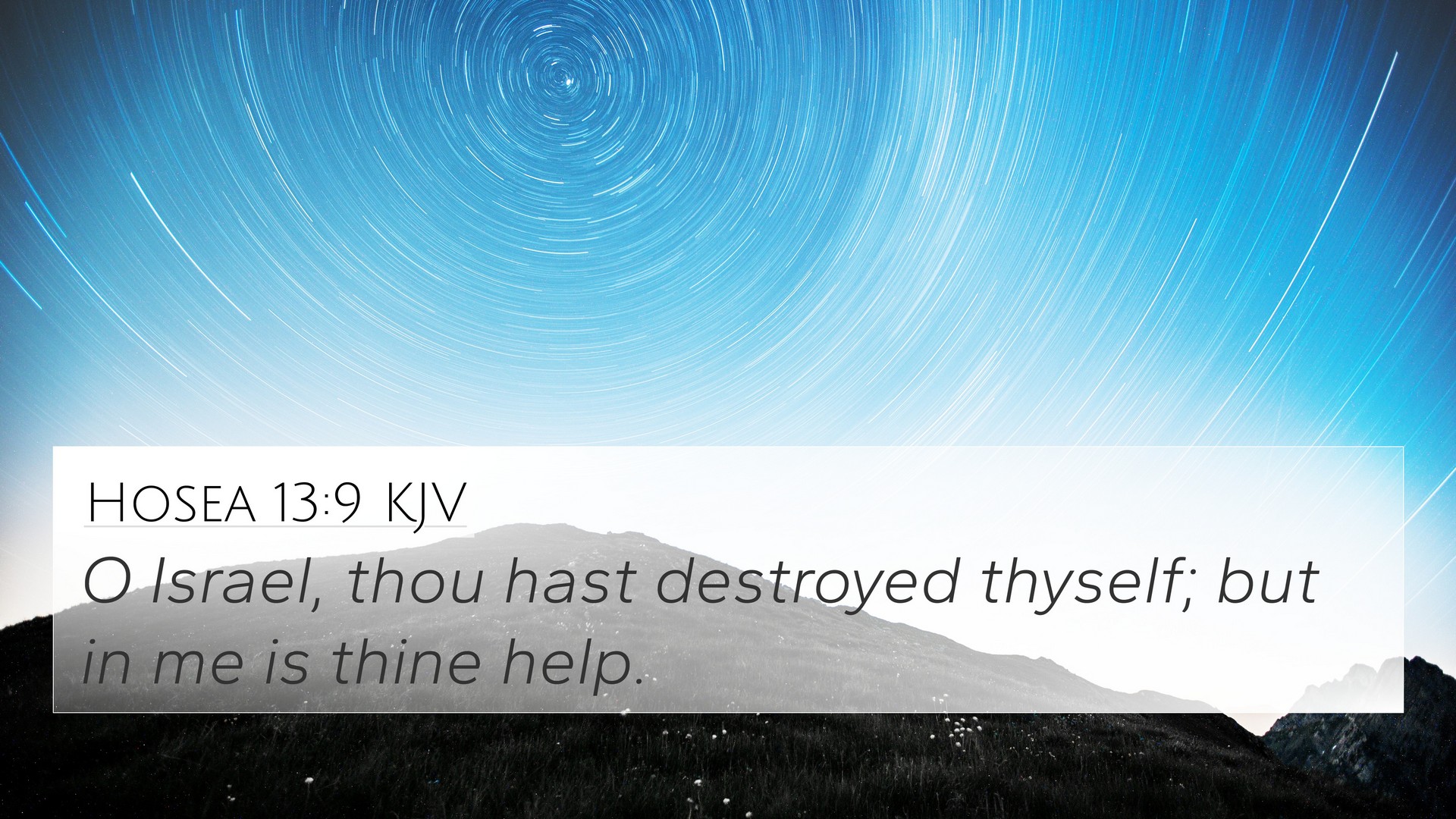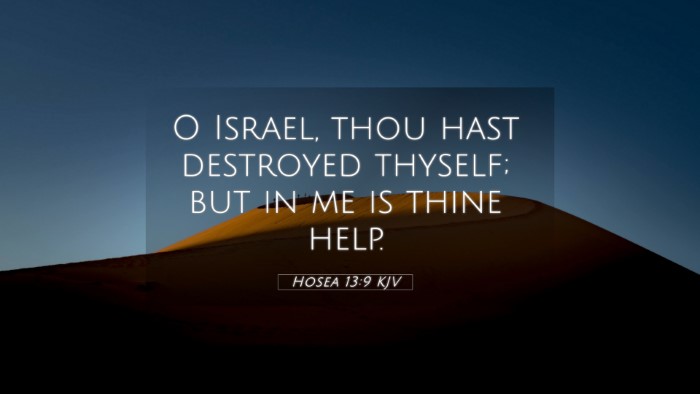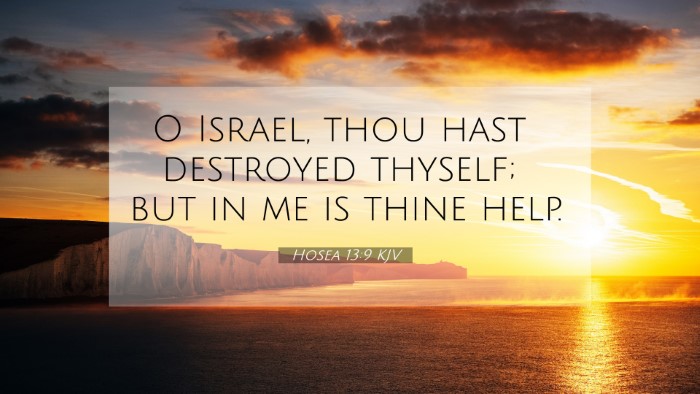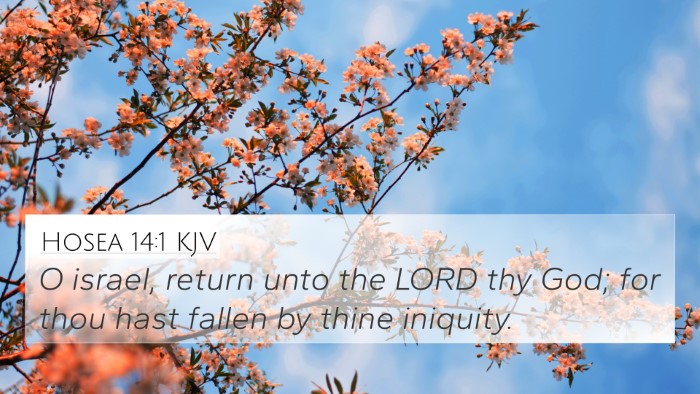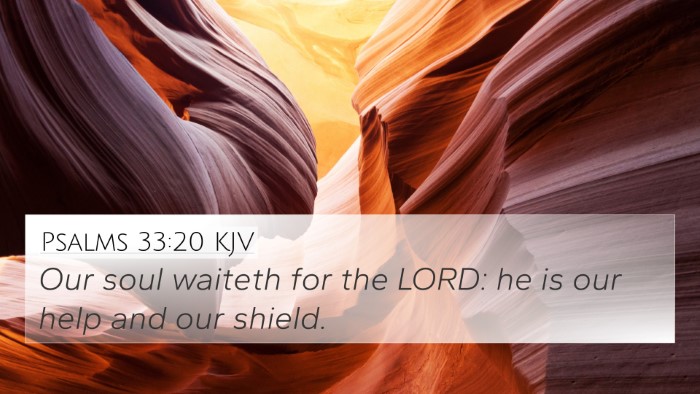Old Testament
Genesis Exodus Leviticus Numbers Deuteronomy Joshua Judges Ruth 1 Samuel 2 Samuel 1 Kings 2 Kings 1 Chronicles 2 Chronicles Ezra Nehemiah Esther Job Psalms Proverbs Ecclesiastes Song of Solomon Isaiah Jeremiah Lamentations Ezekiel Daniel Hosea Joel Amos Obadiah Jonah Micah Nahum Habakkuk Zephaniah Haggai Zechariah MalachiHosea 13:9 Similar Verses
Hosea 13:9 Cross References
O Israel, thou hast destroyed thyself; but in me is thine help.
Uncover the Rich Themes and Topics of This Bible Verse
Listed below are the Bible themes associated with Hosea 13:9. We invite you to explore each theme to gain deeper insights into the Scriptures.
Hosea 13:9 Cross Reference Verses
This section features a detailed cross-reference designed to enrich your understanding of the Scriptures. Below, you will find carefully selected verses that echo the themes and teachings related to Hosea 13:9 KJV. Click on any image to explore detailed analyses of related Bible verses and uncover deeper theological insights.
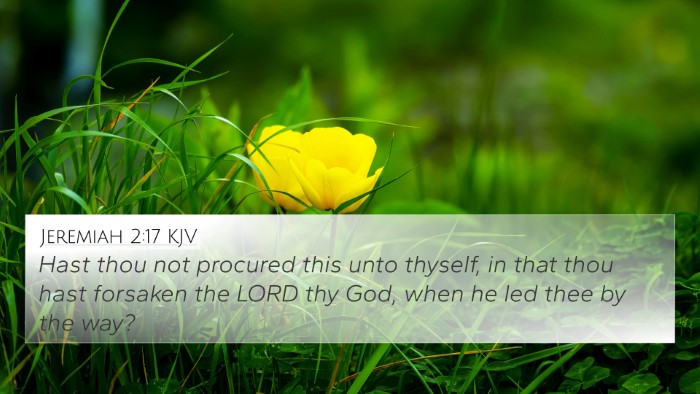
Jeremiah 2:17 (KJV) »
Hast thou not procured this unto thyself, in that thou hast forsaken the LORD thy God, when he led thee by the way?
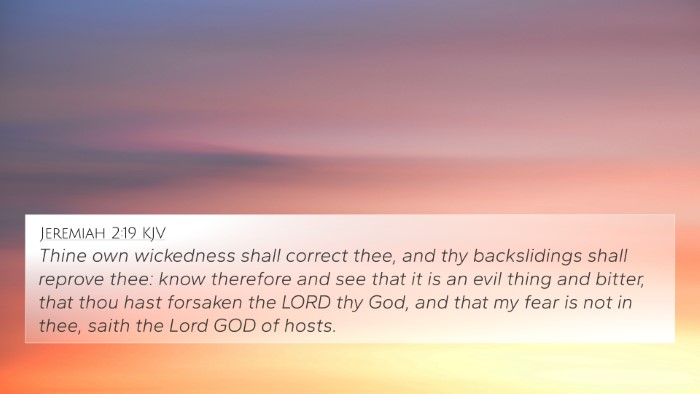
Jeremiah 2:19 (KJV) »
Thine own wickedness shall correct thee, and thy backslidings shall reprove thee: know therefore and see that it is an evil thing and bitter, that thou hast forsaken the LORD thy God, and that my fear is not in thee, saith the Lord GOD of hosts.
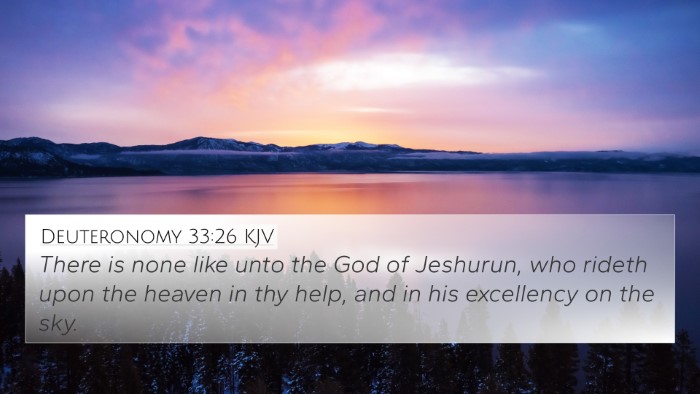
Deuteronomy 33:26 (KJV) »
There is none like unto the God of Jeshurun, who rideth upon the heaven in thy help, and in his excellency on the sky.

Jeremiah 5:25 (KJV) »
Your iniquities have turned away these things, and your sins have withholden good things from you.
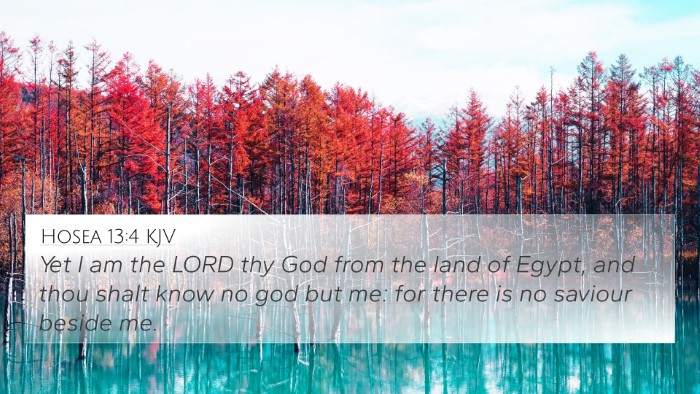
Hosea 13:4 (KJV) »
Yet I am the LORD thy God from the land of Egypt, and thou shalt know no god but me: for there is no saviour beside me.
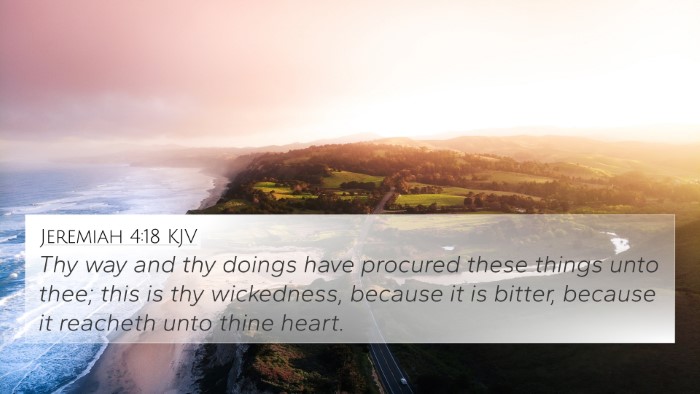
Jeremiah 4:18 (KJV) »
Thy way and thy doings have procured these things unto thee; this is thy wickedness, because it is bitter, because it reacheth unto thine heart.
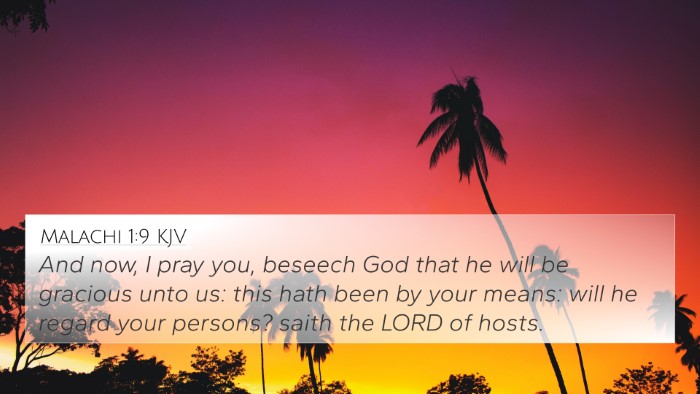
Malachi 1:9 (KJV) »
And now, I pray you, beseech God that he will be gracious unto us: this hath been by your means: will he regard your persons? saith the LORD of hosts.
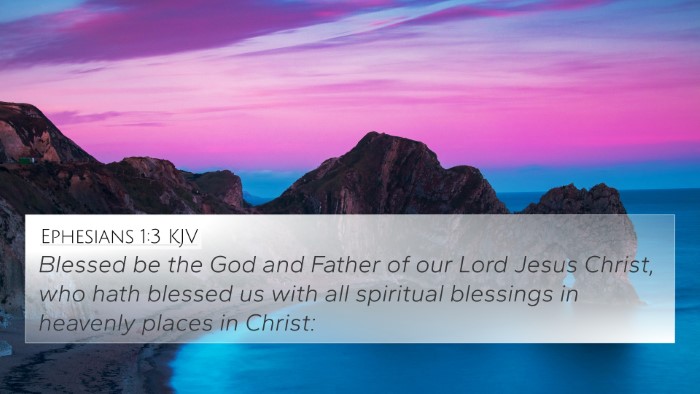
Ephesians 1:3 (KJV) »
Blessed be the God and Father of our Lord Jesus Christ, who hath blessed us with all spiritual blessings in heavenly places in Christ:
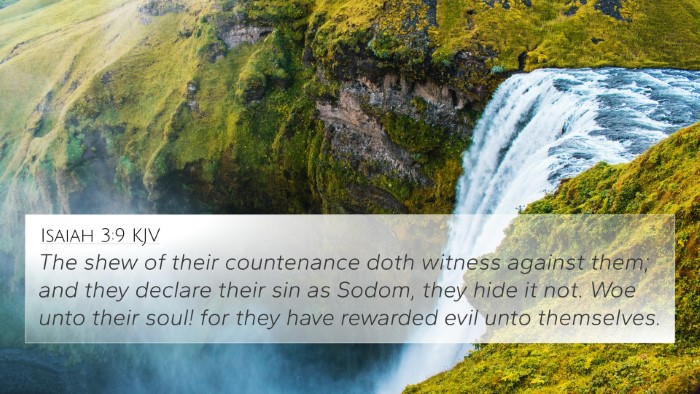
Isaiah 3:9 (KJV) »
The shew of their countenance doth witness against them; and they declare their sin as Sodom, they hide it not. Woe unto their soul! for they have rewarded evil unto themselves.

Isaiah 3:11 (KJV) »
Woe unto the wicked! it shall be ill with him: for the reward of his hands shall be given him.
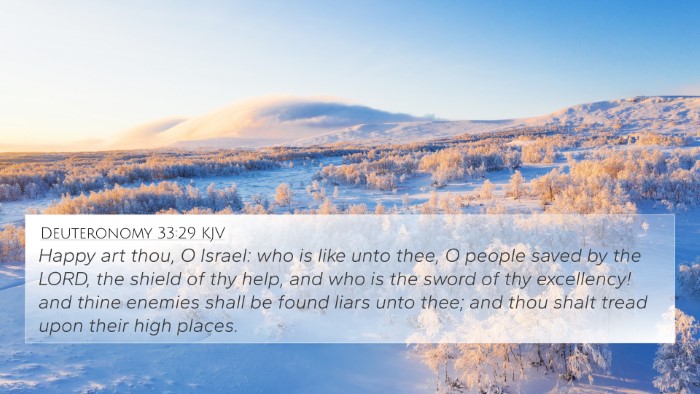
Deuteronomy 33:29 (KJV) »
Happy art thou, O Israel: who is like unto thee, O people saved by the LORD, the shield of thy help, and who is the sword of thy excellency! and thine enemies shall be found liars unto thee; and thou shalt tread upon their high places.
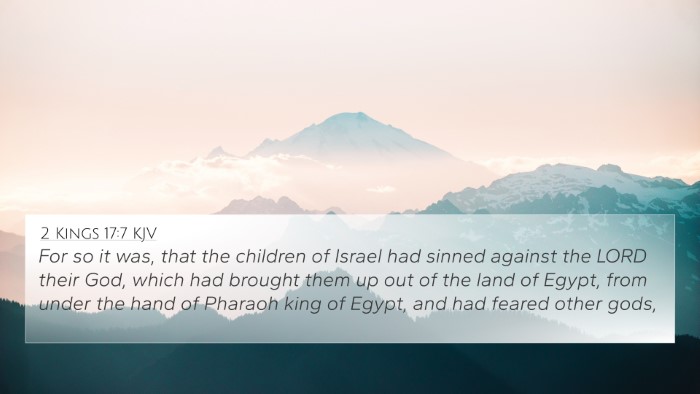
2 Kings 17:7 (KJV) »
For so it was, that the children of Israel had sinned against the LORD their God, which had brought them up out of the land of Egypt, from under the hand of Pharaoh king of Egypt, and had feared other gods,
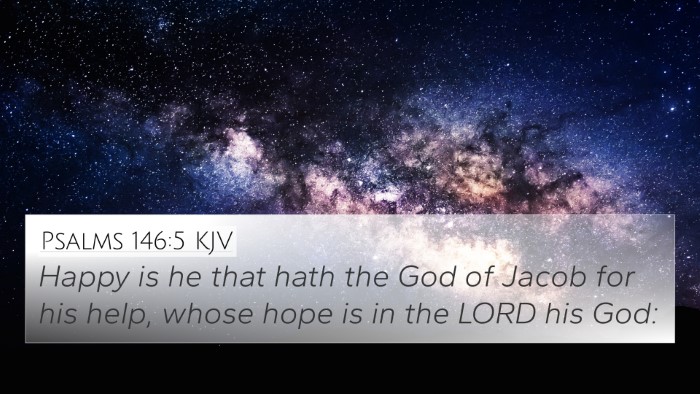
Psalms 146:5 (KJV) »
Happy is he that hath the God of Jacob for his help, whose hope is in the LORD his God:
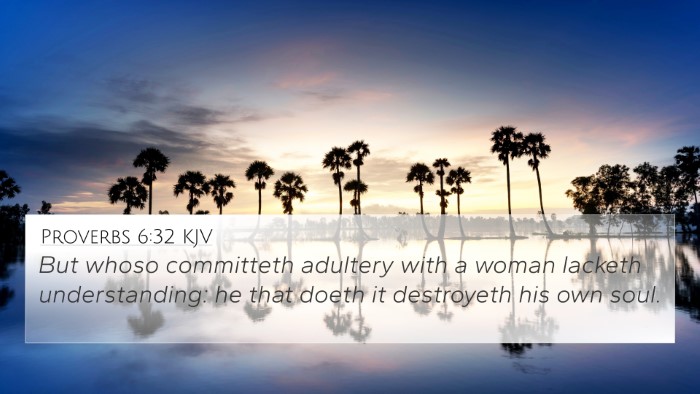
Proverbs 6:32 (KJV) »
But whoso committeth adultery with a woman lacketh understanding: he that doeth it destroyeth his own soul.

Proverbs 8:36 (KJV) »
But he that sinneth against me wrongeth his own soul: all they that hate me love death.
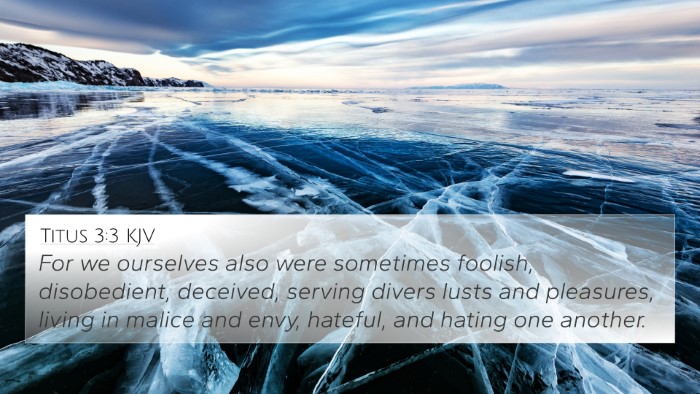
Titus 3:3 (KJV) »
For we ourselves also were sometimes foolish, disobedient, deceived, serving divers lusts and pleasures, living in malice and envy, hateful, and hating one another.
Hosea 13:9 Verse Analysis and Similar Verses
Understanding Hosea 13:9
Hosea 13:9 states: "O Israel, thou hast destroyed thyself; but in me is thine help." This verse serves as a somber reminder of the consequences of Israel’s disobedience and the reality of divine mercy. The prophet Hosea conveys a crucial theological message regarding self-destruction through sin and the indispensable nature of reliance on God.
Verse Context and Background
Hosea, a prophet in the northern kingdom of Israel, preached during a time of great moral decline. The kingdom was rife with idolatry and corruption, which led the people away from God. This verse encapsulates the essence of Israel's predicament: while their sin has led to ruin, true help and restoration can only be found in God.
Insights from Public Domain Commentaries
Matthew Henry’s Commentary
According to Matthew Henry, this verse highlights the self-destructive nature of turning away from God. The phrase “thou hast destroyed thyself” suggests that Israel, through its choices, has brought about its own downfall. Henry emphasizes the importance of recognizing God as the only source of help, juxtaposing human failure with divine fidelity.
Albert Barnes’ Notes on the Bible
Albert Barnes notes that the self-destruction mentioned here indicates a departure from God and neglect of His commandments. He remarks that the acknowledgment of one's failure is crucial for the restoration process and stresses that while Israel had turned away, God remains ready to assist if they turn back.
Adam Clarke's Commentary
Adam Clarke elaborates on the concept of divine help in His commentary, asserting that despite the ruin caused by sin, God's desire to extend mercy remains. Clarke urges readers to understand the necessity of recognizing their own failings and the importance of seeking God's aid in recovery and restoration.
Thematic Connections
Hosea 13:9 serves as a pivotal point for understanding several themes within scripture, including sin, repentance, and divine mercy. The following points capture significant thematic connections:
- The Sinfulness of Israel: This theme is echoed throughout the book of Hosea, centering on idolatry and abandonment of God.
- Consequences of Sin: The concept of self-destruction due to sin is found in Proverbs 14:12, showing that what seems right can lead to death.
- God’s Grace and Mercy: The call for help amidst destruction reflects themes present in the New Testament, such as in John 3:17, where Jesus is sent into the world not to condemn but to save.
- Human Dependency on God: Recognizing our need for God’s help is a consistent teaching, as seen in Psalm 46:1, affirming God as our refuge and strength.
- The Importance of Repentance: As seen in 2 Chronicles 7:14, turning back to God brings healing, illustrating the necessity of repentance.
- Conditional Forgiveness: The theme of returning to God for restoration aligns with verses like Acts 3:19, encouraging repentance leading to times of refreshing.
Cross-Referencing Biblical Texts
To enrich the study of Hosea 13:9, it is beneficial to explore cross-references that reveal deeper connections between Biblical texts. Here are some noteworthy passages:
- Jeremiah 2:19: “Thy own wickedness shall correct thee.” This verse reflects the consequences of forsaking God.
- Isaiah 47:10: “Thou art wearied in the multitude of thy counsels.” This speaks to the futility of relying on oneself rather than God.
- Proverbs 28:13: “He that covereth his sins shall not prosper.” This aligns with the theme of self-destruction through sin.
- Acts 3:26: “Unto you first God, having raised up his Son Jesus, sent him to bless you.” This emphasizes God’s initiative in offering help through Jesus.
- Matthew 11:28: “Come unto me, all ye that labour and are heavy laden, and I will give you rest.” An invitation to seek divine assistance.
- Romans 7:24-25: “O wretched man that I am! Who shall deliver me from the body of this death? I thank God through Jesus Christ our Lord.” The cry for help reflects Hosea's theme.
Conclusion
Hosea 13:9 serves as a profound reminder of the dangers of straying from God. It illustrates the destructive nature of sin and the necessity of seeking divine help. By exploring the connections between this verse and others throughout scripture, one can gain a deeper understanding of Biblical teachings on mercy, repentance, and the significance of God in our lives.
For further exploration, one might consider using tools for Bible cross-referencing, such as a Bible concordance or cross-reference Bible study guides, to identify more themes and connections within scripture.
